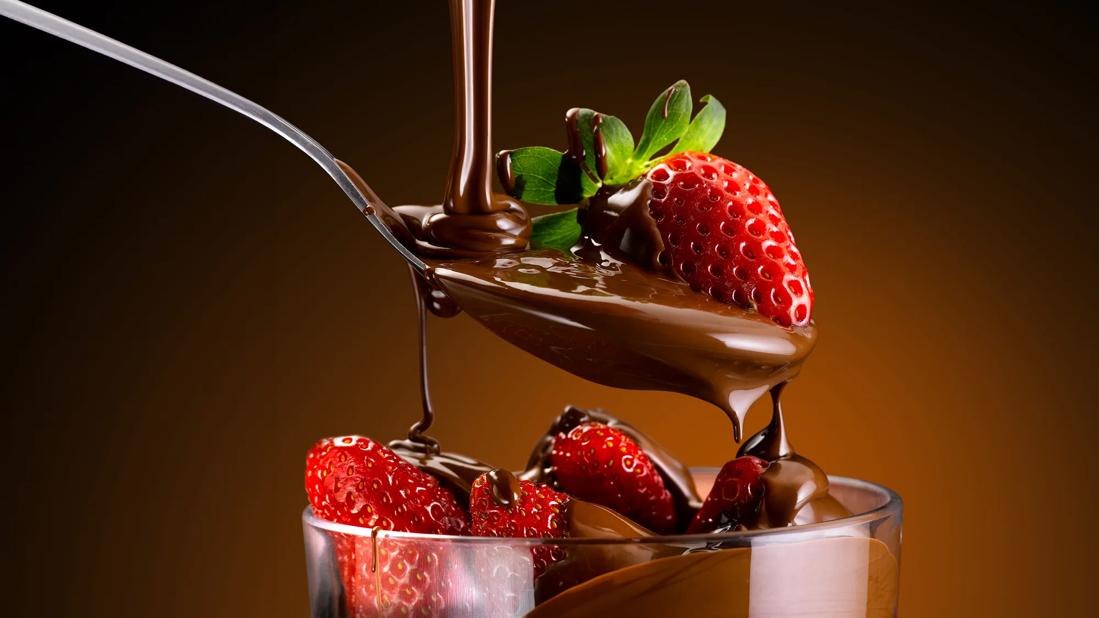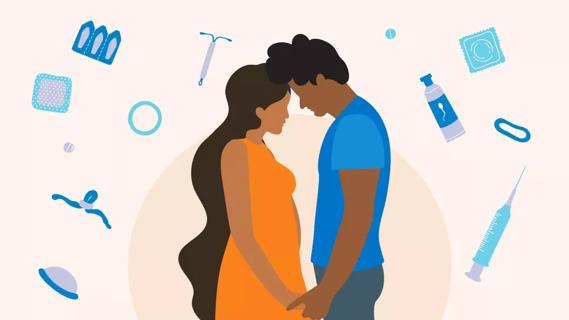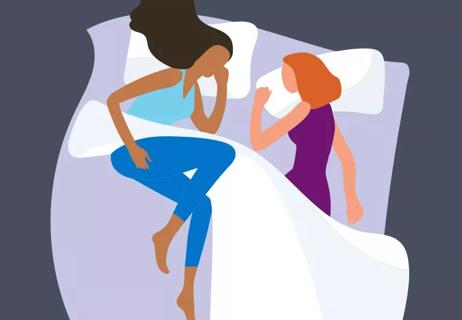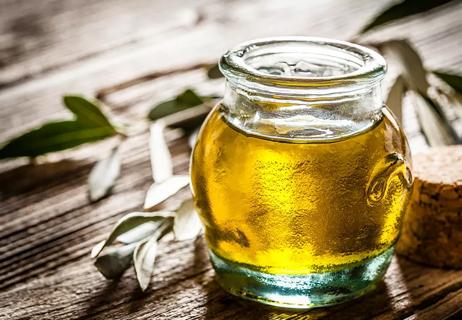Some foods are thought to rev up your sex drive, despite lack of scientific evidence

Legend says certain foods may serve as natural aphrodisiacs, powering passion and driving carnal pleasure. Basically, serve up an aphrodisiac, and the result might be extra spicy. (Wink, wink.)
Advertisement
Cleveland Clinic is a non-profit academic medical center. Advertising on our site helps support our mission. We do not endorse non-Cleveland Clinic products or services. Policy
But is there any truth to these steamy claims? Research findings aren’t exactly arousing on the topic.
Let’s break down our romantic appetite with registered dietitian Julia Zumpano, RD, LD.
Aphrodisiacs are foods, herbs and spices thought to rev up your sex drive, as well as increase your libido, attraction and pleasure. The name comes from Aphrodite, the Greek goddess of love and beauty whose libido generated mythical tales.
Historically, aphrodisiacs have been divided into three main categories, says Zumpano. They’ve been used to increase:
Here are 10 foods (and spices) regarded as aphrodisiacs and what can be said about each.
Myth claims that famed philanderer Giacomo Casanova ate 50 oysters a day to fuel his promiscuous lifestyle. And while science hasn’t proven him right, there may be something to his diet.
Oysters are loaded with zinc, which can nudge up testosterone levels to spur sex drive. Zinc also raises levels of dopamine, the “feel good” hormone in your brain that heightens the sense of pleasure, says Zumpano.
But can we definitively say oysters boost libido? Not exactly, given the lack of research.
Cacao has long been thought to increase sexual desire, which may explain why it’s such a popular Valentine’s Day gift. It includes a compound called phenylethylamine, a mild stimulant that can positively affect your mood.
Advertisement
But it may be a stretch to think it gets sexual engines revving, notes Zumpano. In fact, one study found that women who eat chocolate more often become LESS interested in sex.
Capsaicin is the fiery compound in chili peppers that singes taste buds and activates sweat glands. “Some people believe it can also boost testosterone and kick your libido into high gear,” shares Zumpano.
But while your rising body temperature may make you feel like peeling off your clothes, there’s no scientific proof it will make sex any hotter.
Summer’s favorite fruit is rich in citrulline, an amino acid known to relax and dilate blood vessels in much the same way as erectile dysfunction (ED) medications. That’s why some refer to watermelon as “Nature’s Viagra®.”
That said, you couldn’t possibly consume enough watermelon to make it worthwhile, clarifies Zumpano. Plus, the rind is the part of watermelon most packed with citrulline — and that’s not likely to be eaten.
Let’s face it: Strawberries have become a symbol of sexy food. There’s just something about nibbling on the sweet, heart-shaped fruit that eludes sensuality. Dip it in dark chocolate and … oh, my.
That reputation is more Valentine’s Day marketing than fact, though: “Strawberries pack a nutritional punch and play a role in immune, heart and brain health, but they don’t have any special sexual powers,” shares Zumpano.
When it comes to endorsements for stimulating sexual arousal, honey lands a pretty significant voice: Hippocrates, long regarded as the father of modern medicine for his healthcare work in Ancient Greece.
It’s said that Hippocrates prescribed honey to patients who needed help getting their groove on. Today, we know that honey can help boost testosterone levels, so maybe he was onto something.
But again, there’s no substantial evidence that honey will help you get in the mood.
Be wary, too, of honey-based products marketed as sexual enhancers. Hidden drug ingredients may be contained in several supplements.
Here’s another touted aphrodisiac connected to Ancient Greece.
The Greeks connected figs to fertility because of the fruit’s many seeds. There’s some truth to the concept, too. Figs are high in iron, which studies show plays a key role in both female and male fertility.
But again, Zumpano emphasizes that there’s not enough research to label figs as a fertility wonder or libido builder.
Want to get the blood flowing for a hot and heavy night? Try eating a few pistachios.
The tree nut is rich in l-arginine, an amino acid that dilates blood vessels to improve blood flow. That’s a big perk if you have ED. One small study shows that eating 100 grams of pistachios daily for three weeks reduced symptoms of ED.
Advertisement
Think again if you don’t consider root vegetables all sorts of sexy.
Maca is a Peruvian root vegetable with a well-earned reputation for jumpstarting libidos.
Studies show it may be effective at increasing sexual desire and alleviating some forms of sexual dysfunction. There are signs it may improve semen quality, too.
But while some studies show potential bedroom benefits, others advise caution. One group of researchers says health claims have been “dragged out of context” and can’t be fully supported by science.
This sweet, earthy spice has been shown to improve sexual function, but those positive results are largely confined to people taking antidepressants.
Researchers found that saffron brought firmer erections in men and improved arousal and lubrication in women who were taking fluoxetine (commonly prescribed under the brand name Prozac®).
Findings aren’t quite as bullish regarding saffron’s effect on people not taking medication for depression, notes Zumpano.
Cultures around the world view (and have viewed) many different foods as aphrodisiacs. Some of the reasons why dishes earn erotic labels aren’t exactly based on solid science, reiterates Zumpano.
But in fairness, some foods do contain nutrients, vitamins and minerals that may bring the zing to intimacy. But the association is often in theory. Very little is based on proven fact.
Advertisement
Bottom line? There’s simply not enough evidence to make definitive and affirmative statements.
But that doesn’t mean they can’t crank up sexual energy. “Just because a food doesn’t have scientific properties declaring it helpful for your libido doesn’t mean that it’s not still doing a little something for your libido,” states Zumpano.
Chalk it up to the placebo effect. That’s the term for when your mind essentially tricks you into thinking a sham remedy brings results. It’s a phenomenon that illustrates the power of positive thought.
Essentially, it’s saying if you believe something works … well, maybe it will.
So, when it comes to aphrodisiacs, if you find a certain food sexy — be it chocolate, oysters or something else entirely — taking a taste can’t hurt, according to Zumpano.
Government oversight of dietary supplements isn’t very stringent. They don’t get the same scrutiny as food or medications. That makes it difficult to know exactly what you’re getting in quality and concentration.
Given that, Zumpano recommends staying away from supplements marketed as aphrodisiacs. “They aren’t approved by the U.S. Food and Drug Administration (FDA) and may negatively interact with medications you’re taking,” she cautions.
Advertisement
Aphrodisiacs often are just part of the flirtatious fun to set the mood for a romantic evening. It’s the culinary equivalent of dimming the lights and letting Marvin Gaye croon some suggestive lyrics.
But if you’re experimenting with aphrodisiacs because of low libido, ED, vaginal dryness or related issues, know that there are medical solutions. Talk to a healthcare provider about your options. Because in the end, Zumpano says that you’re much better off turning to medical professionals than chocolate bars.
Learn more about our editorial process.
Advertisement

Arousal without orgasm can be uncomfortable, but it’s no reason to pressure sexual interactions

If anxiety is keeping you from having the sex life you want, communication, education and therapy can help

Anorgasmia is a fairly common concern with a wide range of physical and psychological causes

Your sexual history directly influences your physical, mental and emotional health in a multitude of ways

‘Safer sex’ means STI prevention, avoiding unintended pregnancies and psychologically safe practices for everyone

Medications and therapy can help get your groove back

It’s perfectly normal for gas pockets to ‘evacuate’ during the motions of sex

Stay away from hand lotion and honey, but coconut oil can do the trick

Wearing a scarf, adjusting your outdoor activities and following your asthma treatment plan can help limit breathing problems

Your diet in the weeks, days and hours ahead of your race can power you to the finish line

When someone guilt trips you, they’re using emotionally manipulative behavior to try to get you to act a certain way